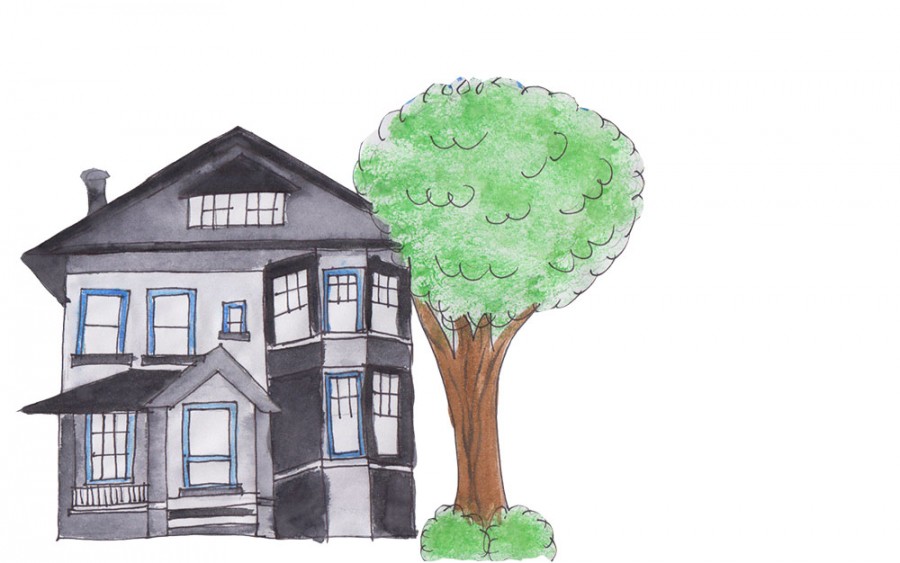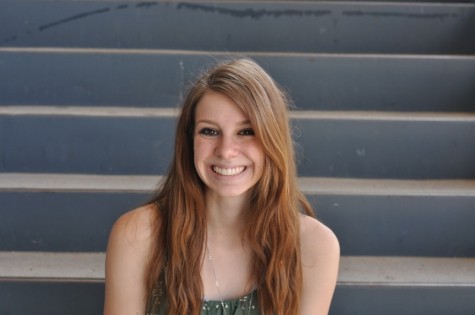Teenagers in group homes
In trying times, some OHS students have been placed in group homes and introduced to an entirely new lifestyle
March 30, 2016
New school. New people. New home. New life.
By definition, a group home is a long term facility where a group of unrelated children have been placed for a variety of reasons, and can receive care, support and supervision. These children have been removed from their previous situations, and from their parents or guardians, and have been introduced to an unfamiliar lifestyle almost overnight.
Many students at OHS would be surprised to learn that some of their peers are currently living in group homes, and are experiencing a very different lifestyle than the average teenager.
According to Kate Warren, Title I academic liaison clerk for Deer Valley Unified School District, and recent winner of the Community of Character and Courage award, these are just average kids who were living normal lives, until something went awry.
“Some of these kids were just cruising along in life and something went wrong, and it’s not always a crime or some awful thing,” Warren said. “Often it is, and that’s why they’re not in the situation they were in anymore.”
Warren has held her position as academic liaison clerk for three years now, and before she was offered the job, it did not exist.
“Somebody at the district office said ‘You know what, we have lots of kids in group homes, who are in that situation for a very little time or a very long time and could use some more support. Let’s go into the schools with the highest population of group home kids, and let’s talk to them and give them what they need,’” Warren said. “My kids say I’m getting paid to be a mom, but I’m another adult who can sit with them and listen and get an overview of school and behavior and the house.”
Warren has aided students from a multitude of backgrounds– everything from drugs, to drinking, to unemployment, to prison time.
Jane*, junior, has resided in a group home since Oct. 2015, and meets with Warren every Tuesday morning.
“There’s a lot of things I like to do, with sports and school, and Ms. Warren motivates me,” Jane said. “I really don’t have any other motivation in my life. It feels good knowing she’s there and knowing that she cares and understands certain things I’m going through.”
Along with being separated from her parents, Jane went almost six months without seeing her siblings, who were all placed in individual group homes.
According to Jane, living in a group home resembles being at school.
The average, daily routine of a group home student consists of waking up, getting ready for school, doing a chore, then going to school, going to sports practice, then coming home, doing chores, then going to sleep. There is not much room for freedom or deviation, and the home is run by a house manager, along with several staff members.
“I was forced to learn a new lifestyle with all these new rules and all these new people,” Jane said. “It’s hard because it’s their job, so they don’t understand, it’s just what they have to do.”
Mark*, freshman, also resides in a group home, and has been doing so for about two months. He describes his situation as sad, but manageable, and not much different than living at home.
“It’s not like a prison, it’s like a normal house, you just don’t get as much freedom as you do if you live with your parents,” Mark said. “We don’t go to the park if people act up, it’s a privilege. You can’t really go outside whenever you want, you’re in the house all the time. If you do act up, you basically just sit there.”
Chandler Evans, athletic director, believes that students at OHS are unaware of the circumstances of some of their fellow classmates.
“They don’t even know what a group home is. Sometimes when students hear “group home,” they think its for students who are underprivileged, or somebody that is on the streets, or something like that,” Evans said.
Warren agrees, saying that all families go through hard times at some point, and the only difference between students that are in group homes and students that aren’t, is that somebody noticed the issue and reported it. Then, the authorities are involved, and these students’ lives are forever changed.
“I didn’t really know how to feel, I tried to shut everything in my life out,” Jane said. It’s hard because once you’re with Child Protective Services (CPS), what you say doesn’t matter. It’s not what you think is what’s good for you, it’s basically ‘You’re going to do this because you’re going to do this, whether you like it or not.’”
Jane wishes that students at OHS would be more aware of what group homes are, and would be more open about the situation, rather than judgemental and harsh.
“When I first moved here, some kids found out that I lived in a group home, and I got made fun of,” Jane said. “I just wish kids could understand that it’s not my choice, it’s way more detailed than just living in a group home. It’s really nothing to joke about, and it messes up people’s lives a lot.”
However, while Jane and Mark are dealing with difficult situations outside of school, they are no different than any other student at OHS. They may have had rough pasts, but they continue to push through, each day, despite feeling alienated from their peers.
“It makes me feel different every day,” Jane said. “Coming to school, kids talk about their parents 24/7. Right now, with the sport I play, everyone’s complaining about their parents coming to see them and it’s hard because my parents won’t be there to cheer me on, and I don’t really know how to make people understand that without letting them know my situation.”
*For safety reasons, student names and certain details have been changed.



